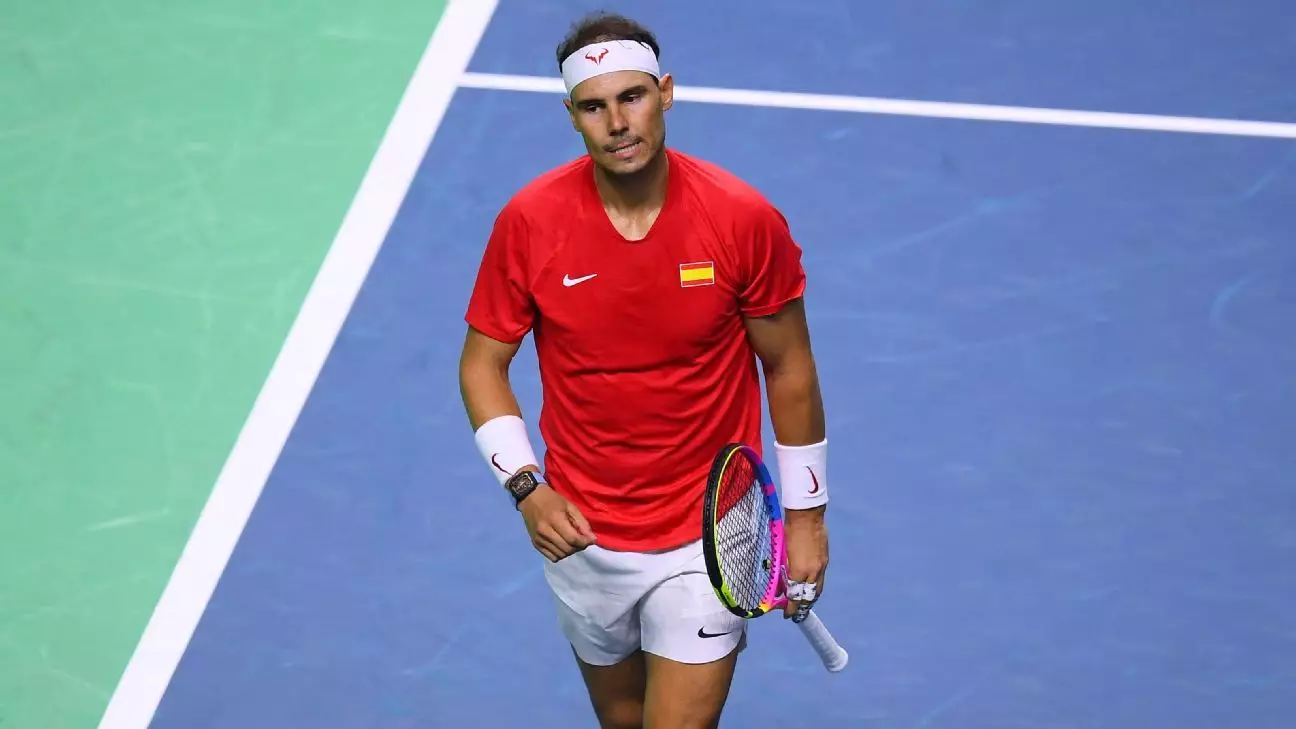In a poignant and candid interview following his recent defeat to Botic Van De Zandschulp in the Davis Cup quarterfinals, Rafael Nadal provided not only insight into his performance but also a glimpse into his emotional state as he nears the conclusion of his illustrious career. With a heavy heart, Nadal expressed uncertainty about whether he should be selected to represent Spain again this week, showcasing a humility that has often characterized his approach both on and off the court. His 6-4, 6-4 loss served as a bittersweet reminder of his sporting journey, as he echoed the sentiment that perhaps younger players, such as Roberto Bautista Agut, might now offer Spain a better shot at winning.
Nadal was quick to affirm that the ultimate decision lay with Spain’s captain, David Ferrer. “That’s why we have a captain on the team,” Nadal acknowledged, emphasizing respect for the hierarchical structure within the squad. His humility radiated as he suggested that Ferrer might consider benching him for future matches, stating that if he were in Ferrer’s position, he would likely make the same call. This reflection on his current form encapsulates Nadal’s desire to prioritize the needs of the team over his own ambitions, underscoring a sense of collective responsibility. The respect he has for his captain demonstrates the sportsmanship that has endeared him to fans for years.
The emotional weight of Nadal’s words conveyed a strong sense of finality, especially as he navigated through what could potentially be his last singles match on a professional stage. Speaking candidly about the mix of emotions he experienced, from anxiety before stepping onto the court to the nostalgic resonance of hearing the national anthem one last time, Nadal was not shy in admitting that retirement looms ominously. “Of course, it has been an emotional day,” he stated, providing a glimpse into the internal conflict many athletes face as they transition out of competitive sports. The raw vulnerability and authenticity of his words have touched the hearts of many, illustrating the mental toll that the prospect of retirement can have.
Despite the discouraging result, Nadal remained optimistic about Spain’s future in the tournament. He candidly expressed his hopes that his teammates, particularly Carlos Alcaraz, would prevail in their matches, thereby offering him another opportunity to contribute. “I really hope that Carlos is going to win his match,” Nadal stated, embodying a spirit of camaraderie and support. This connection with his teammates and an aspiring drive to give back, even in his twilight, is a testament to his leadership.
In the world of competitive sports, it is often easy to overlook the emotional and psychological challenges athletes face. Nadal’s reflection on his defeat serves to remind fans of the human aspect behind the accolades and statistics. The mental resilience required to push through adversity and face the unknown future is something that transcends the sport itself.
As the tournament unfolds, Nadal’s statements indicate a deeper understanding of his legacy and the impact he leaves not just on the tennis court, but within the collective consciousness of Spanish sports. His journey, filled with triumphs, struggles, and unwavering spirit, encapsulates what it means to be a true champion. Looking ahead, one hopes he can bring not only his competitive spirit but also his wealth of experience and encouragement to the younger generation of players.
As Nadal navigates the complexities of the concluding chapter of his career, one cannot help but cherish moments like these. They remind us that while the competitive fire may fade, the character, humility, and spirit he has exemplified will undoubtedly endure, inspiring fans and aspiring athletes long after he has hung up his racquet.

